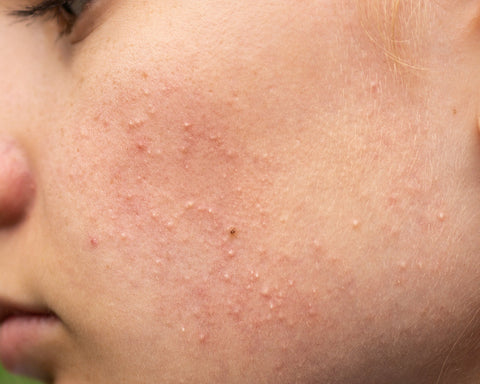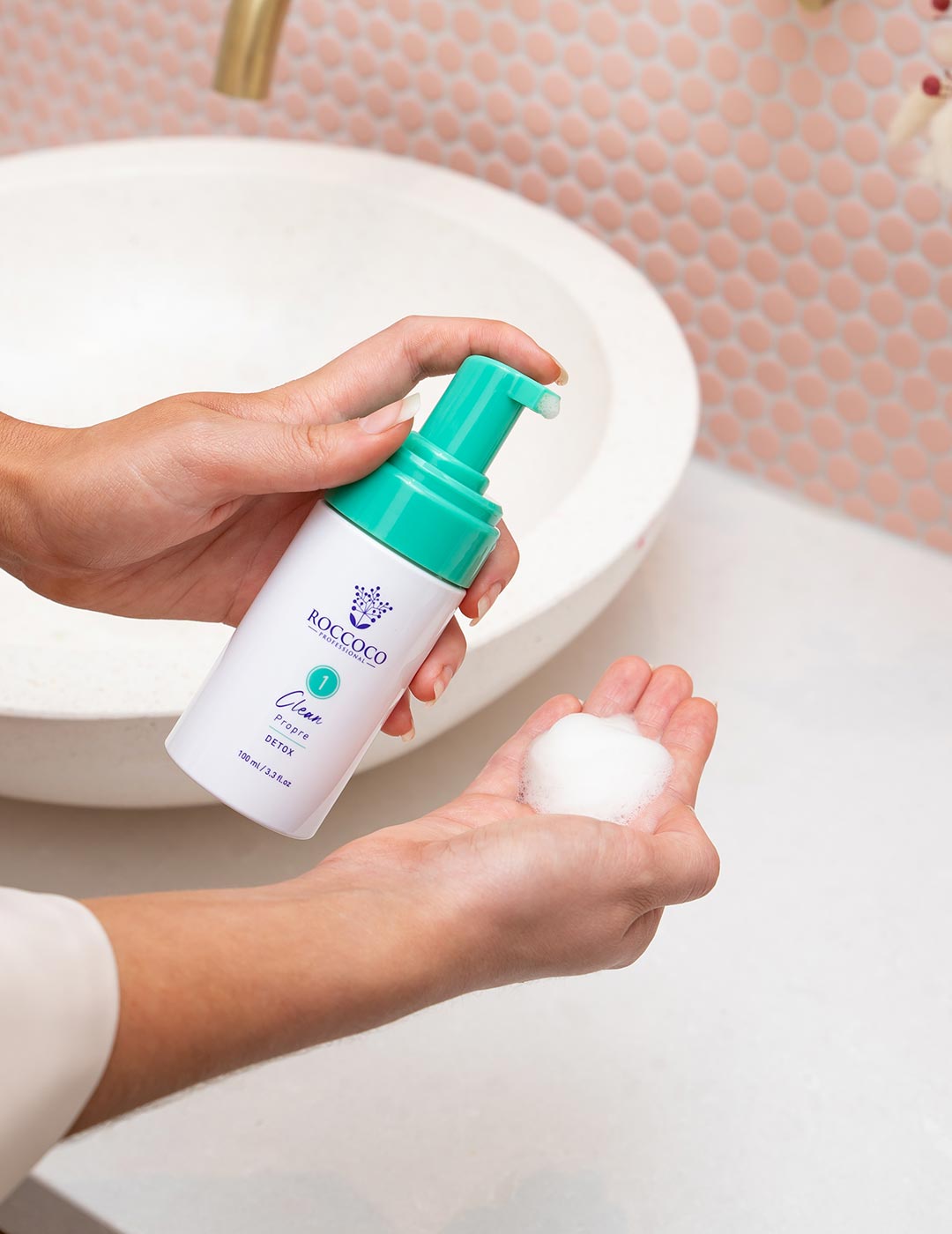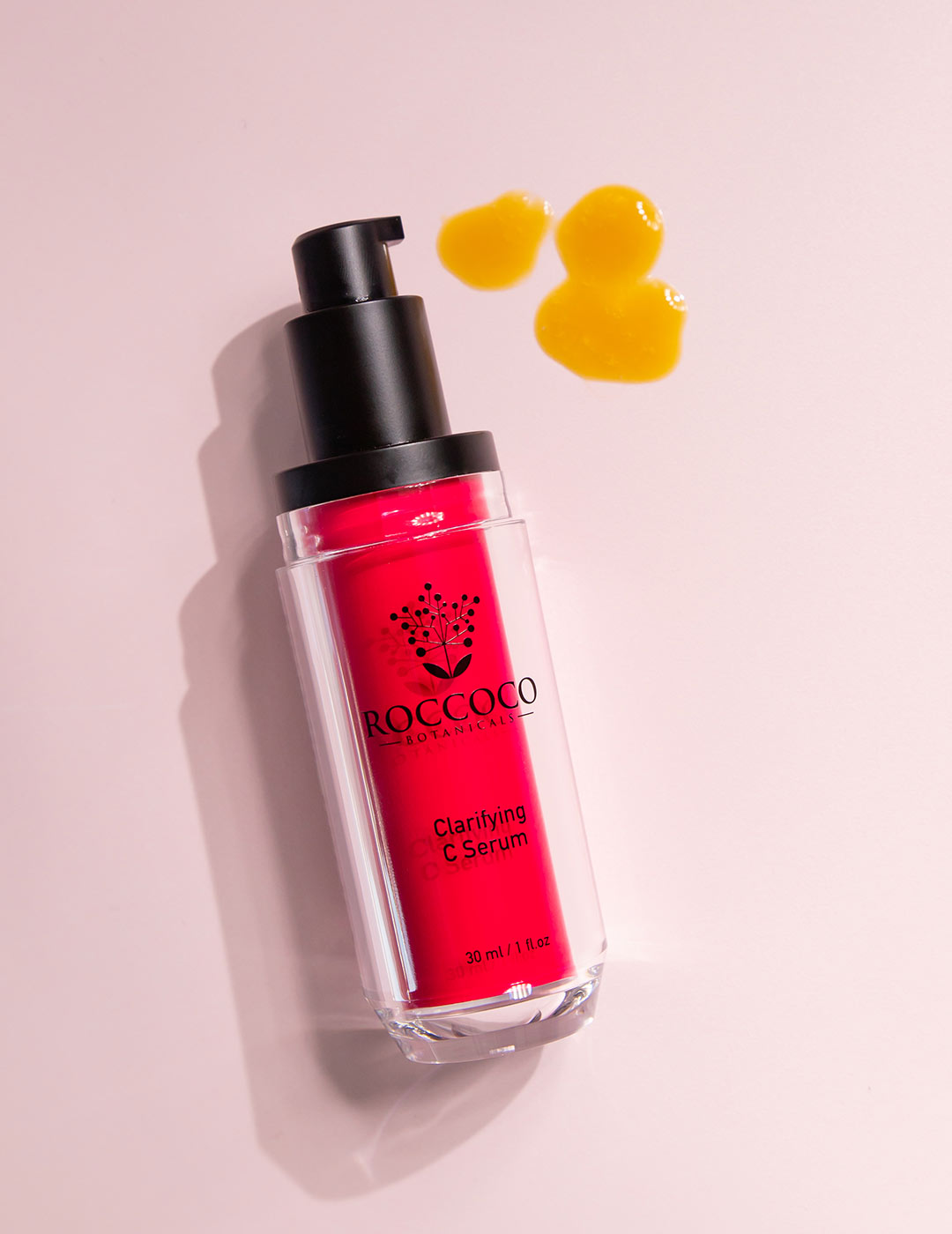Closed comedones are a common problem many people struggle with, and they can negatively impact your complexion and the health and texture of your skin.
These tiny bumps are often called whiteheads and is considered a type of acne.
They develop when hair follicles become clogged with dead skin cells and sebum.
Unfortunately, this means debris are trapped within the follicle, which can make them harder to treat.
They also blend into the skin better, making them harder to identify and remove.
What Are Closed Comedones
We’ve touched on it already, but closed comedones are also known as closed or whitehead acne.
They are non-inflammatory acne lesions that manifest as small, raised bumps on the skin.
They are a type of acne vulgaris, a common skin condition that arises from the clogging of hair follicles.
The closed nature of these comedones distinguishes them from open comedones like blackheads, where the pore remains open and the debris is exposed to the air, causing it to oxidize and turn black.
Closed comedones, on the other hand, remain beneath the skin's surface, often requiring specific skincare approaches for effective treatment.

Common Causes and Characteristics
When it comes to developing closed comedones, the main cause is overproduction of sebum.
Sebum is the skin’s natural oil, which when combined with dead skin cells, forms a plug within the hair follicles.
Hormonal fluctuations, particularly during adolescence, menstruation, or pregnancy, can intensify sebum production and exacerbate the formation of closed comedones.
Other causes include the use of comedogenic skincare products, genetic predispositions, and environmental factors such as pollution.
Importance of Addressing Closed Comedones for Healthy Skin
Addressing and healing closed comedones is crucial for maintaining healthy skin and preventing the progression of acne-related issues.
While closed comedones themselves may not cause significant inflammation or discomfort, if left untreated, they can evolve into more severe forms of acne, such as papules, pustules, or nodules.
Furthermore, the accumulation of closed comedones can lead to enlarged pores, uneven skin texture, and an overall dull complexion.
If you want to protect your skin health in the long term, it’s important to treat closed comedones.

Traditional Treatments for Closed Comedones
Overview of Chemical Peels
One of the most common methods for addressing closed comedones is through the use of chemical peels.
Chemical peels are dermatological procedures that involve the using chemical solutions on the skin. This causes controlled exfoliation and promotes the shedding of dead skin cells.
These peels come in various strengths, depending on the level of acne and skin concerns.
Specifically formulated chemical peels are often used to target closed comedones and improve overall skin texture.
How Chemical Peels Work
Chemical peels work by doing controlled injury to the skin's outer layer, prompting the body's natural healing response.
The chemical solution applied during the procedure exfoliates the top layer of the skin, encouraging the removal of dead cells and promoting cellular turnover.
This process helps unclog pores, eliminate trapped debris, and stimulate the production of new, healthier skin cells.
Problems with Traditional Treatments
While chemical peels have been a staple in dermatological practices for addressing closed comedones, it's important to understand the potential drawbacks of these peels.
Potential problems include skin sensitivity, skin dryness and inflammation, risk of post-peel pigmentation changes, and the need for multiple sessions – and potentially still not seeing results.
Skin Sensitivity and Potential Side Effects
One significant problem with traditional treatments for closed comedones, such as chemical peels, is the potential for skin sensitivity and painful side effects.
Chemical peels can be harsh on the skin, leading to redness, irritation, and peeling.
Individuals with sensitive skin may experience heightened discomfort, and those prone to allergies may react negatively to certain peel ingredients.

Downtime and Recovery
Another drawback of traditional treatments is the required downtime and recovery period following procedures like chemical peels.
Depending on the depth of the peel, individuals may experience varying degrees of skin peeling, redness, and flakiness.
The recovery process can be inconvenient for those with busy schedules, as longer periods of downtime is expected.
Limited Effectiveness for Some Skin Types
While chemical peels have proven effective for many individuals, their efficacy can be limited for certain skin types.
Darker skin tones, in particular, may be more prone to post-inflammatory hyperpigmentation or hypopigmentation following chemical peel treatments.
This limitation highlights the need for alternative solutions that are gentler on the skin yet still potent in addressing closed comedones.
The Role of Vitamin C Serum
Vitamin C as a Skincare Ingredient
Vitamin C, also known as ascorbic acid, is a powerhouse ingredient in the realm of skincare.
Widely celebrated for its antioxidant properties, Vitamin C plays a crucial role in neutralizing free radicals, reducing oxidative stress, and promoting collagen.
As a water-soluble vitamin, it offers numerous benefits for the skin, making it a popular choice in skincare formulations.
Vitamin C serums, in particular, have gained recognition for their ability to address various skin concerns, including closed comedones.
Benefits of Vitamin C for Troubled Skin
Vitamin C has a range of benefits that are beneficial for acne-prone skin. Its potent antioxidant properties help protect the skin from environmental damage, while also aiding in the repair of damaged skin cells.
Furthermore, Vitamin C is known for its ability to brighten and even out skin tone, providing a radiant and healthier complexion.
In the context of closed comedones, Vitamin C can contribute to reducing inflammation, preventing new whiteheads from forming, and promoting the overall health of the skin.

Treating Closed Comedones with Vitamin C Serum
Vitamin C serums, when specifically formulated for acne-prone skin, can be an effective alternative to traditional treatments for closed comedones.
These serums are often rich in phyto extracts, vitamins, and anti-inflammatory properties that work together to soothe irritated skin, reduce the appearance of whiteheads, and clear clogged pores.
Roccoco’s Clarifying C Serum
Introducing the Clarifying C Serum, which has been carefully created address the unique needs of acne-probe skin.
Infused with a potent blend of Phyto extracts, essential vitamins, antioxidants, and anti-inflammatory agents, this Vitamin C serum is designed to reduce the appearance of whiteheads, unclog pores, and smooth the skin's surface.
Our gentle formulation provides a soothing and calming effect, nurturing the skin. As a result, the Clarifying C Serum not only targets closed comedones but also helps with an even and revitalized skin tone.
Elevate your skincare routine with the rejuvenating power of Vitamin C, for a radiant complexion that radiates health and vitality. Click here to order yours today.

Read more
Acne-prone skin often requires a delicate balance of managing excess oil production without stripping the skin of its natural moisture. Using oil cleansers can be beneficial for acne-prone skin, ...

In recent times, environmental pollution has become a huge problem – not only for the planet, but for skin aging and damage. The increasing levels of pollutants in the air have far-reaching conse...



